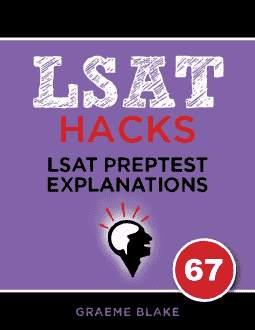QUESTION TEXT: Principle: Only if a professor believes a student…
QUESTION TYPE: Principle
RULE: Accuse someone of plagiarism only if you think they purposely presented someone else’s ideas as their own.
APPLICATION: The professor shouldn’t accuse Walters of plagiarism.
ANALYSIS: You’re not given any facts in this question. Just a conclusion: don’t accuse Walters of plagiarism.
The principle gives us a necessary conditions for accusing someone of plagiarism. Only accuse if you think someone did it on purpose.
If the professor is missing this necessary condition, then he shouldn’t accuse. Missing the necessary condition is the same thing as the statement’s contrapositive.
The contrapositive is: if you don’t know whether someone plagiarized on purpose, don’t accuse them.
Accuse ➞ Believe purposefully present as own
Believe purposefully present as own ➞ Accuse
The right answer has to be about the professor’s belief.
___________
- The professor might still believe Walters plagiarized even if the evidence isn’t completely compelling.
- This doesn’t deal with what the professor believes.
- CORRECT. This deals with the professor’s beliefs. Since the professor doesn’t think Walters is guilty, he shouldn’t accuse him of plagiarism.
- This is like asking a criminal whether they are guilty. Who cares what Walters thinks?
- This tells us what the professor will do. It doesn’t tell us what he should do.


Leave a Reply